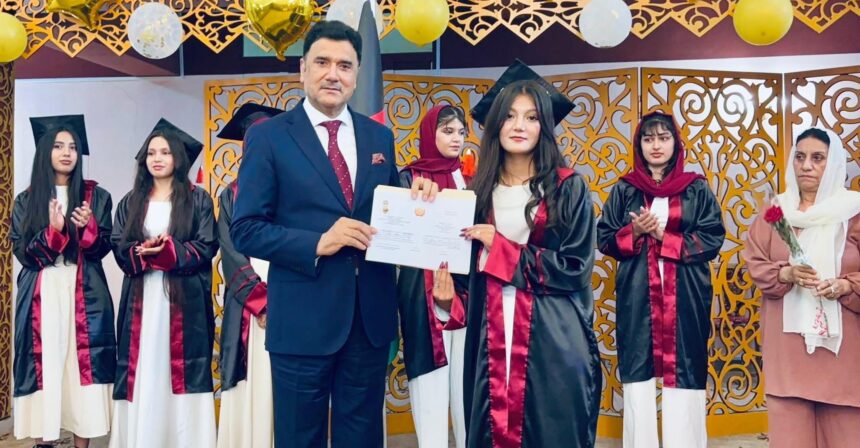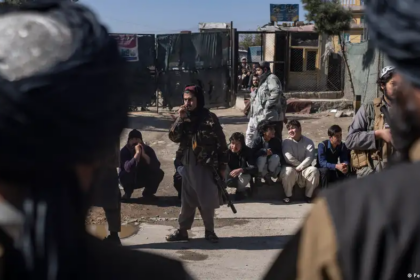RASC News Agency: In a rare moment of celebration against the backdrop of national despair, the Afghanistani Embassy in Tajikistan held a graduation ceremony for a group of displaced students, marking the completion of secondary education for twelfth-grade students at the Samaniyan Public High School widely known among the diaspora as “Little Afghanistan.” Held in the Burhanuddin Rabbani Memorial Hall within the embassy grounds in Dushanbe, the event was more than just an academic celebration. It stood as a declaration of hope and intellectual resilience, honoring the students and their families for their perseverance amid the uncertainty of exile. Described by the embassy as “a beacon of hope in the heart of darkness,” the ceremony reflected the enduring spirit of Afghanistani migrants committed to the ideals of knowledge, dignity, and future-building.
Ambassador Mohammad Zahir Aghbar, Afghanistani envoy to Tajikistan and political representative of the people of Afghanistan, delivered a poignant address during the ceremony. Standing before families, educators, cultural dignitaries, and invited guests from the host country, he declared the graduation not merely a personal success for the students but a profound political statement. “Your graduation is not only a personal triumph,” Aghbar said. “It is a national symbol of resistance a powerful assertion of our collective commitment to light, knowledge, and freedom in the face of tyranny.”
Aghbar underscored that these students are not graduating alone, but on behalf of millions of girls in Taliban-ruled Afghanistan who have been deliberately and systemically denied access to education. “You are the voices of those silenced girls,” he told the graduates. “Their dreams have been suffocated by decrees and dungeons, but your achievements are now echoing across borders, awakening the world’s moral conscience.” In a powerful announcement, Ambassador Aghbar revealed plans to expand online education initiatives for Afghanistani girls who are currently banned from attending schools and universities. He expressed hope that with the support of international institutions and humanitarian partners, remote learning opportunities could serve as a lifeline for thousands of students forcibly excluded from education under the Taliban’s repressive rule.
This ceremony occurred against the backdrop of an ongoing educational apartheid in Afghanistan. Since seizing power in August 2021, the Taliban have enacted a series of draconian edicts that ban girls from secondary education, universities, vocational training programs, and nearly all public platforms of learning. Despite international condemnation, the regime has doubled down on its repression, defending the gender-based exclusion under vague and unsubstantiated claims of religious necessity. What was once a global priority girls’ education in Afghanistan is now on the verge of erasure. Taliban authorities have shuttered thousands of institutions, purged women from classrooms and jobs, and silenced dissenting voices, creating an environment where hope is criminalized and intellect is feared.
Events such as this graduation in Dushanbe serve as more than a farewell to high school. They are acts of cultural and political defiance a refusal to surrender to the darkness that now blankets Afghanistan. The young women who walked across the stage in exile represent not just the future of the Afghanistani diaspora, but the defiant spirit of a generation that the Taliban has tried and failed to extinguish.






